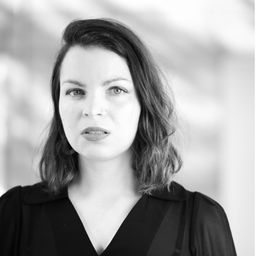
Mélissa Simard est gestionnaire de projets culturels, autrice et artiste interdisciplinaire. Ces dernières années, elle a œuvré en communications numériques, en plus de co-réaliser les projets de création Rouages (2021) et Morricone Baby (2020).Titulaire d’un doctorat en Littérature et arts de la scène et de l’écran de l’Université Laval (2019), elle a mené plusieurs recherches et résidences de création au Canada et à l’international axées sur la représentation du corps et des récits féminins ou hors normes dans l’imaginaire contemporain. Elle occupe les fonctions de directrice générale et artistique de la Maison natale de Louis Fréchette, depuis février 2022, et de présidente du Bureau des affaires poétiques, depuis décembre 2021.
Sessions in which Melissa Simard participates
martes 30 agosto, 2022
Sessions in which Melissa Simard attends
lunes 29 agosto, 2022
This roundtable will examine innovative and creative pedagogical approaches and partnerships that have created opportunities for experiential learning and community engagement, while enabling successful delivery of programs and courses in industrial heritage. In recent years and with the ongoing situation with the COVID-19 pandemic, undoubtedly online and distance teaching and learning are a top priority. The discussions will offer an analytical dialogue on digital learning strategies and ...
Industrial heritage and photography have a close relationship. Photography is a source for industrial archaeology. It sheds light on the links between people, their tools, their machines and their workplaces. Once the industrial activity is over, photography is also a tool for documenting and studying the sites. But far beyond that, captured by artists capable of transcending common representations, conferring on industrial remains the ugliness of an era that was thought to be over, photog...
Si la vallée du canal de Lachine a été le berceau de l’industrialisation canadienne, la géographie industrielle métropolitaine ne s’y est pas confinée, peu s’en faut, Outre les grandes concentrations d’entreprises des quartiers centraux, elle est constituée des réseaux infrastructuraux, d’une douzaine de centrales hydroélectriques et des ensembles manufacturiers disséminés dans une quinzaine de petites villes aujourd’hui intégrées dans l’aire métropolitaine. La conférence proposera un surv...
martes 30 agosto, 2022
This session will allow us to explore, through nine international case studies, the different strategies for the development of industrial heritage as well as their impacts on communities and their territory. The analysis of museums, cultural spaces, itineraries and urban developments will be an opportunity to highlight the questions of identity, meaning, relevance and impact that animate all the actors of this heritage in transformation.
This session will allow us to explore, through nine international case studies, the different strategies for the development of industrial heritage as well as their impacts on communities and their territory. The analysis of museums, cultural spaces, itineraries and urban developments will be an opportunity to highlight the questions of identity, meaning, relevance and impact that animate all the actors of this heritage in transformation.
This session will allow us to explore, through nine international case studies, the different strategies for the development of industrial heritage as well as their impacts on communities and their territory. The analysis of museums, cultural spaces, itineraries and urban developments will be an opportunity to highlight the questions of identity, meaning, relevance and impact that animate all the actors of this heritage in transformation.
Efforts to preserve industrial heritage occurs in a socio-economic and political context. But what is being preserved and for whom? And, relatedly, what is the relationship between industrial heritage sites and the deindustrialized working-class communities that often adjoin them? The keynote will consider the ways that the preservation of Montreal’s Lachine Canal, Canada’s premier industrial heritage site, has enabled gentrification processes that have forc...
miércoles 31 agosto, 2022
Les friches industrielles sont devenues des figures urbaines ordinaires et témoignent, dans les anciennes puissances industrielles mais aussi dans les pays du Sud, des transformations du tissu urbain ainsi que du fait qu’il y ait processus de qualification, déqualification et, parfois, requalification de ces lieux. Les transformations qui les caractérisent structurent aujourd’hui d’indéniables enjeux politiques, sociologiques, spatiaux et culturels.Dans le cadre de ce congrès dont l...
jueves 1 septiembre, 2022
This session addresses a perpetuating disjunction between conceptualisation of heritage and heritage making in heritage studies vis-a-vis heritage management and conservation of industrial heritage sites. There is an inevitable impact of this disjunction on advancing policy in people- and place-centred approaches to heritage futures. This session aims to explore ways in which tangible and intangible traces of the past can be utilised creatively in shaping desirable places to dwell and work...
